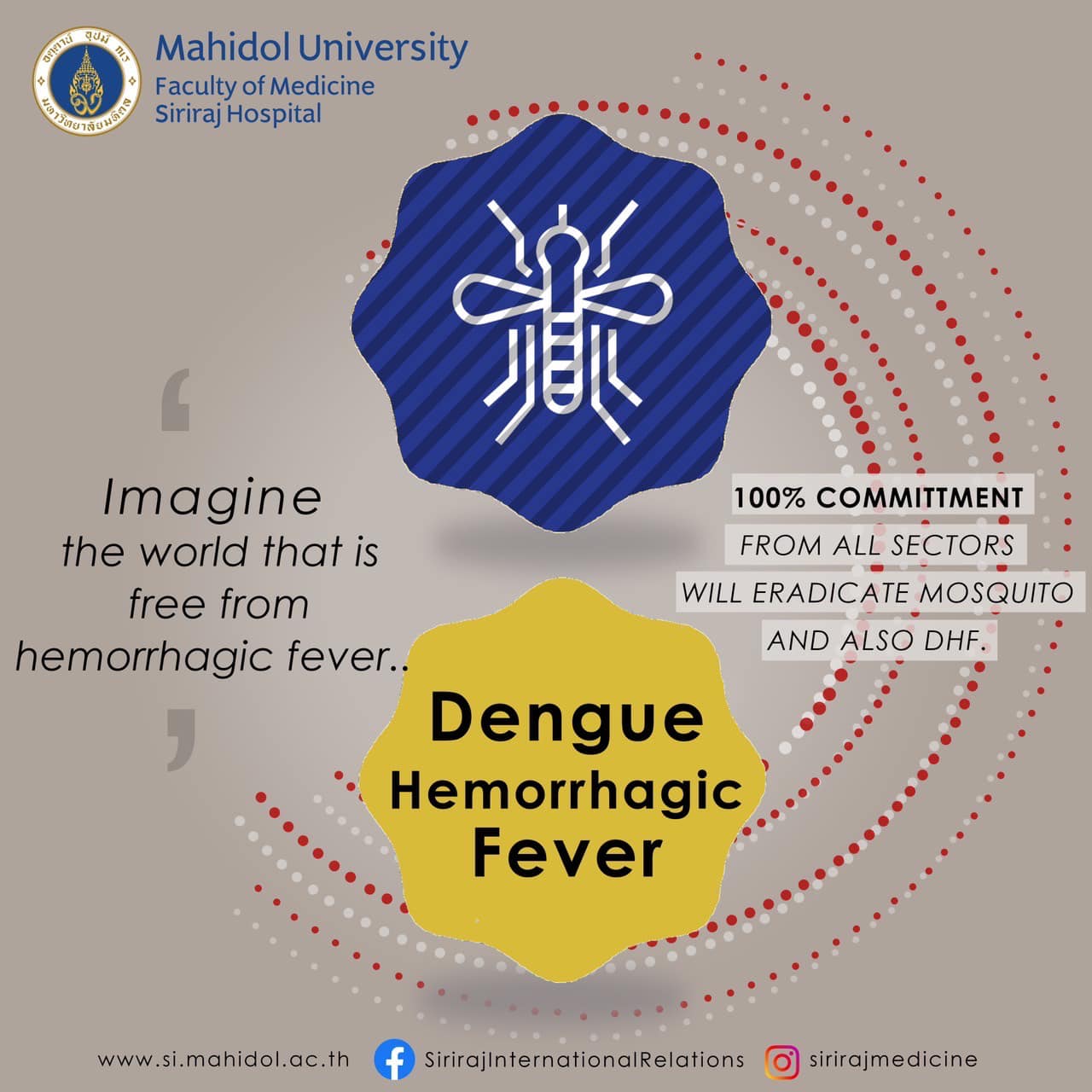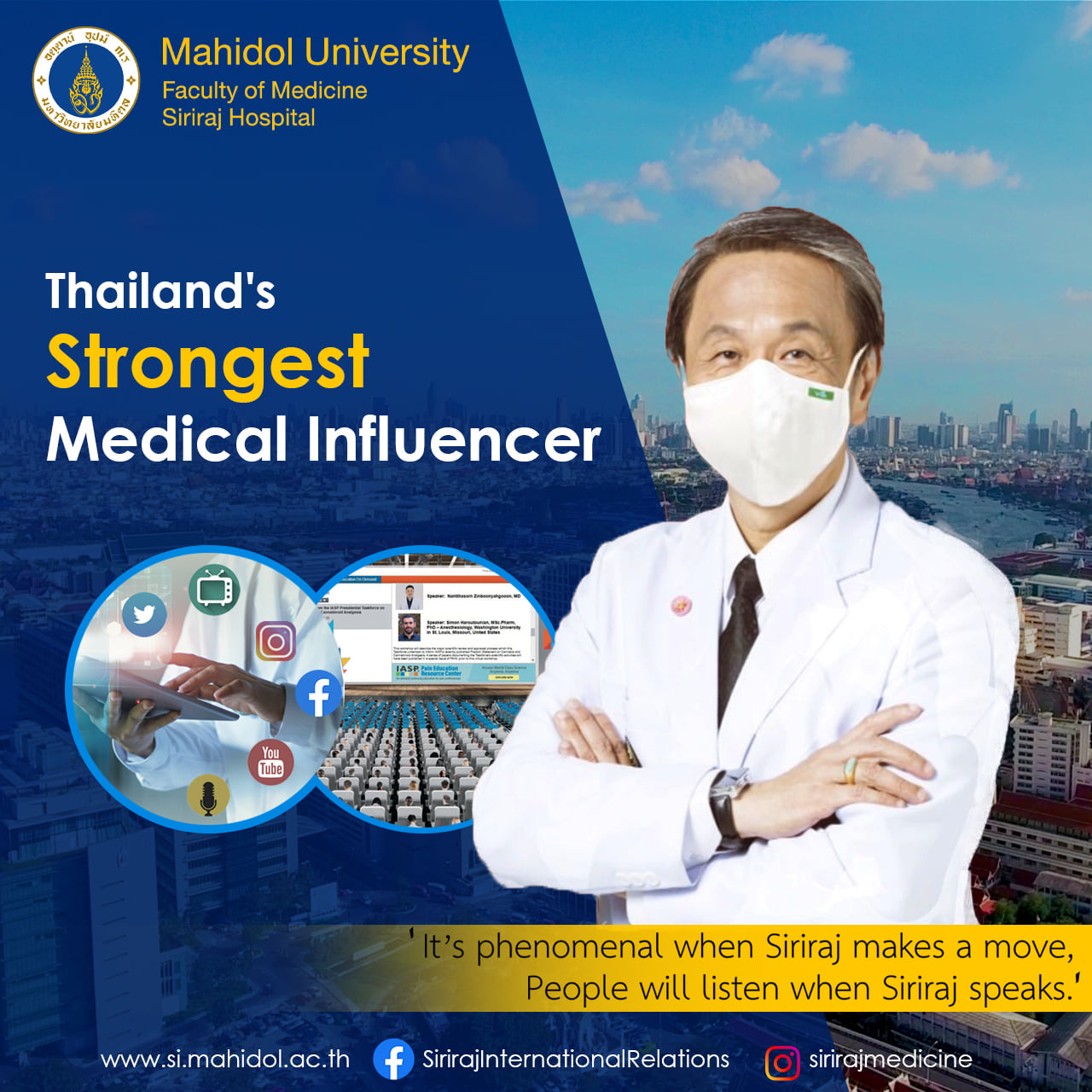Dengue Hemorrhagic Fever – Overview and Recommendation
Thailand has been an endemic area of Dengue Hemorrhagic Fever (DHF) since 1958, resulting in hundreds of deaths every year. One of the four strains of the Dengue virus can be contracted to humans through mosquito bites. DHF can be found all year round, but the incidence is highest in the rainy season when outspread water collections enable mosquito hatching.
The symptoms of Dengue Hemorrhagic Fever (DHL)
The symptoms after infection vary and can be divided into three phases as follows:
-
Fever stage
which usually lasts for 3-5 days and is accompanied by muscle ache, stomachache, vomiting, and skin rashes. Later in this stage, pin-point cutaneous hemorrhagic spots may appear.
-
Shock stage
which develops in severe cases as a result of extravascular fluid leakage induced by a strong immunological reaction. The patients will suffer from low blood pressure, alteration of consciousness, worsening stomach ache and vomiting, internal organ bleeding, which could be severe enough to cause death if adequate treatment is not initiated.
-
Recovery stage
less severe patients will improve quickly and may take another 7-10 days to fully recover.
The Second time of Infection
Physical and health status, as well as infection for a second time, are crucial factors in determining the severity of DHF. After primary infection, specific immunity is produced, which will highly surge after recurrent infection with another strain of Dengue virus. Extreme age, obesity, many chronic medical conditions, and delayed treatment also put the patients at higher risk of developing severe disease. As there is no specific cure for DHF, the major treatment focuses on maintaining a healthy fluid balance to keep patients from developing severe hypotension and consequences from fluid imbalance, as well as avoiding organ damage.
The Recommendations after infection
Many trials employing different drugs to reduce the severity of DHF or genetic re-engineering to castrate the mosquitos have been reported to be unsatisfactory. However, experts are looking forward to the results of many ongoing studies which might shed some light on this tragic disease. In the meantime, disease prevention and mosquito control appear to be the best measures for people in tropical countries, including Thailand, to live a healthy life. The following are some professional recommendations:
- Avoid mosquito bites, not just daytime but all day long. All kinds of mosquito repellent cream or spray are safe for children and pregnant women.
- When having a fever, always keep in mind that DHF is possible, and prompt and early access to medical care will help to reduce the severity of the disease.
- Do not use aspirin or other NSAID drugs to reduce the fever as these drugs can cause severe bleeding.
- Properly manage the household water reservoir to prevent mosquito spawning. Mosquito eggs could survive in dry conditions for months and will hatch when a small amount of water is retrieved. Therefore, before the monsoon season, drying all the buckets and brushing them well is recommended to stop mosquito reproduction. For necessary water reservoirs, putting Abate sand or keeping small fishes will help control the mosquito larva.
- Report the local municipal officers when a DHF case is diagnosed for a community-wide mosquito spray.
- 100% commitment from all sectors is crucial for eradicating of DHF.
Siriraj hospital – Dengue Hemorrhagic Fever Research
Siriraj hospital has been conducting DHF research for decades and has recently completed a number of projects, including Dengue virus isolation and viral genome replication, generation of varieties of anti-NS1 antibodies, many of which show potential roles in protection against Dengue virus infection or production, drugs testing that showed inhibition of the viral output in hepatocytes model. Future research will be focused on a potential biomarker that is serotype-specific to improve diagnostic performance / molecular study of NS1 protein in enhancing the severity of infection through integrated omics technology / sophisticated statistical model to predict clinical course/efficacy of the combination of 3 potential drugs in treating DHF / a controlled human infection model (CHIM) in Thailand. We strongly believe that all the hard work will pay off in the near future and the world will be a better place for everyone to live.


